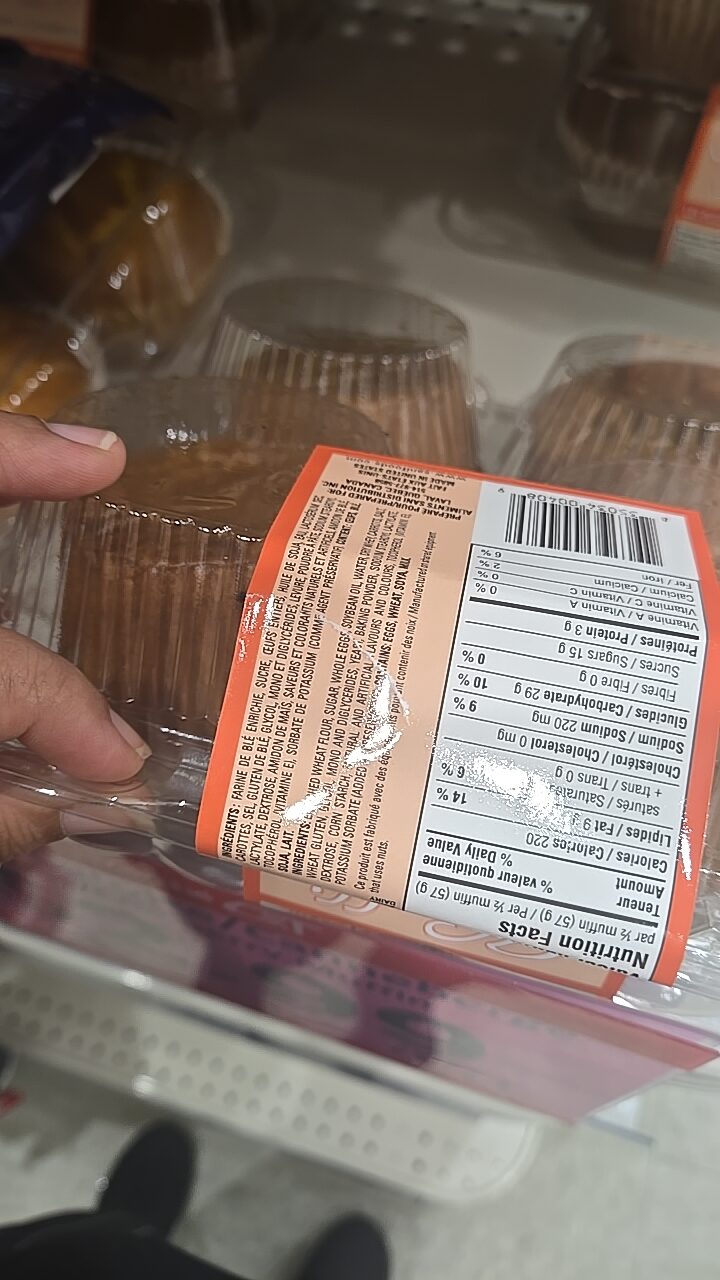
Barcode: 835034004089
muffin
DOUBTFUL
📝 Reason: Several ingredients require source verification for Halal compliance. Without full production transparency, cautious avoidance is advised for observant Muslims.
🏷️ Category: Baked Goods
📄 Certificates: Dairy, Prepared For: Quebec, Distributed By: Alments Prepair Inc, Quebec Canada, Made In United States, This Product Is Manufactured With Equipment That Uses Nuts, Vegetarisch
Ingredients:
Details
Understanding the Halal Status of Muffin
The Halal status of food products is crucial for observant Muslims, as it determines whether they can consume certain items in accordance with Islamic law. In this post, we delve into the Halal status of Muffins, a commonly enjoyed baked good. Currently, the Halal status of Muffin has been labeled as ‘Doubtful’. This designation stems from the uncertainty surrounding several ingredients that necessitate thorough source verification to ensure compliance with Halal principles.
Why is Muffin’s Halal Status Doubtful?
Several ingredients present in the Muffin raise questions about their Halal compliance, primarily due to the lack of production transparency. As such, it is advisable for those observing Halal dietary laws to avoid this product unless they can confirm the Halal assurance of its ingredients.
Ingredients Breakdown
Let’s examine the ingredients that constitute the Muffin and assess their Halal status:
- Enriched wheat flour: Permissible in Islam.
- Sugar: Permissible in Islam.
- Whole eggs: Permissible in Islam.
- Soybean oil: Permissible in Islam.
- Water: Permissible in Islam.
- Dry wheat: Needs further verification.
- Carrot: A root vegetable rich in beta-carotene, permissible as noted in Quran 6:141.
- Salt: Permissible in Islam.
- Wheat gluten: Permissible in Islam.
- Glycerin: Permissible in Islam.
- Mono and diglycerides: Permissible in Islam.
- Yeast: Permissible in Islam.
- Baking powder: Permissible in Islam.
- Sodium stearoyl lactylate: Permissible in Islam.
- Dextrose: Permissible in Islam.
- Corn starch: Generally permissible unless processed with Haram additives.
- Natural and artificial flavors and colors: This ingredient may have varied sources; caution is advised.
- Tocopherol: Permissible in Islam.
- Potassium sorbate (E202): A preservative generally regarded as Halal.
- Soybean: Permissible in Islam.
- Milk: Permissible in Islam.
- Eggs: Permissible in Islam.
The Importance of Ingredient Source Verification
For the Muffin, while many ingredients are confirmed as permissible, others lack complete transparency regarding their origin or production method, which is critical for determining their Halal compliance. For instance, the ingredient ‘natural and artificial flavors and colors’ may be sourced from non-Halal origins, making verification essential.
Brand and Certification Context
The Muffin falls under the Baked Goods category. While the product is being offered by a distributor based in Quebec, Canada, and manufactured in the United States, it is essential to know that it is produced in facilities that may also handle nuts. This cross-contamination risk and the lack of clear Halal certification raise doubts for Halal-conscious consumers.
Conclusion: Should You Consume Muffin?
In conclusion, the Muffin’s Halal status is regarded as ‘Doubtful’ primarily due to the uncertainties surrounding specific ingredients. For observant Muslims, the prudent approach would be to exercise caution and avoid this product unless further assurance of its Halal status can be obtained. Always consult the packaging or directly contact manufacturers for the most reliable information.
